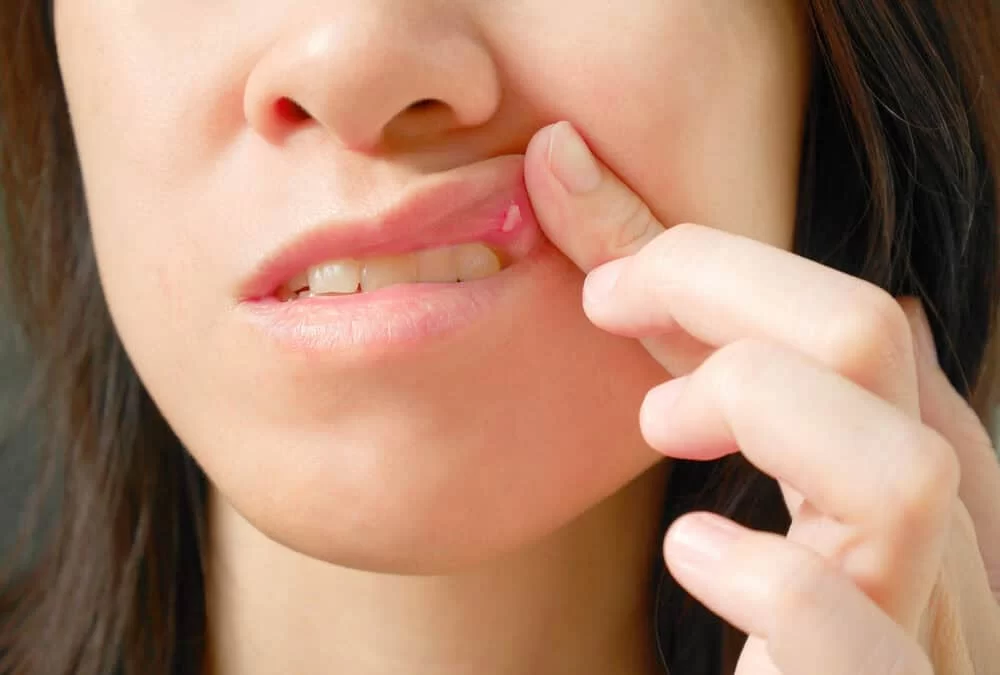
How to Treat Mouth Sores or Ulcers Before Seeing a Dentist
Anyone who has ever experienced a mouth sore or ulcer knows just how painful and uncomfortable they can be. I remember the first time I developed a painful ulcer on the inside of my cheek, and it felt like it lasted forever. The discomfort made it difficult to eat, speak, or even enjoy a normal day. While I knew that I would eventually need to visit a dentist to get to the bottom of the issue, I wasn’t sure how to manage it in the meantime. Over the years, I’ve learned several effective ways to treat mouth sores and ulcers at home, and these strategies have helped me manage the pain and discomfort until I could see my dentist. If you’re dealing with mouth sores, here are the treatments that I’ve found to be the most effective for easing symptoms before you can get professional care.
1. Understanding Mouth Sores and Ulcers
Before diving into treatments, it’s important to understand what mouth sores and ulcers actually are. Mouth sores, also known as canker sores or aphthous ulcers, are small, painful lesions that appear on the soft tissues inside your mouth. They can develop on the tongue, inside the cheeks, gums, or the roof of your mouth. They’re often white or yellow with a red border and can range in size from small to quite large. What I didn’t realize at first is that mouth ulcers are quite common and can be caused by a variety of factors, including stress, certain foods, hormonal changes, or even accidental biting of the inside of your cheek.
Ulcers are typically not contagious, and while they can be uncomfortable, they usually go away on their own within a week or two. However, the pain and irritation they cause can make it difficult to eat, talk, or enjoy your usual activities. In my case, I found that the pain worsened when I ate acidic or spicy foods, which is common for many people dealing with ulcers.
2. Rinse with Salt Water
One of the first things I tried when I noticed a mouth ulcer was rinsing my mouth with a saltwater solution. Saltwater helps to reduce inflammation, promote healing, and reduce the bacteria in your mouth, which can aggravate the sore. To make a saltwater rinse, I mixed about half a teaspoon of salt in a glass of warm water and swished it around in my mouth for 15-30 seconds. I did this a few times a day, especially after meals, and I found that it helped alleviate the discomfort.
Although saltwater doesn’t cure the ulcer, it can provide temporary relief and reduce the chances of infection. I noticed that the saltwater rinse helped keep my mouth clean and made the ulcer feel less tender. If you have an ulcer that’s particularly large or painful, a saltwater rinse is a simple yet effective way to manage the pain until you can see your dentist.
3. Use Over-the-Counter Products for Pain Relief
When I had a particularly painful mouth ulcer, I found that over-the-counter (OTC) products designed specifically for mouth sores could provide relief. These products typically contain numbing agents, like benzocaine, which help to dull the pain and provide temporary relief. I personally used a topical gel that I applied directly to the ulcer, and it worked wonders to alleviate the discomfort for a few hours at a time.
There are also OTC mouthwashes available that can help to numb the area and reduce pain. I tried a rinse that contained a mild antiseptic, which helped disinfect the sore and reduce the risk of further irritation. I found these products to be especially helpful in situations where the ulcer made it difficult to talk or eat, as they provided temporary relief and made it easier to go about my day.
4. Avoid Irritating Foods and Beverages
One of the most important things I learned in managing mouth ulcers was avoiding foods and beverages that could irritate the sore. I realized that spicy, acidic, or crunchy foods only made the pain worse. For example, citrus fruits, like oranges and lemons, as well as tomato-based foods, caused a burning sensation and increased the inflammation in my mouth.
To prevent further irritation, I focused on eating soft, bland foods that wouldn’t aggravate the ulcer. Foods like mashed potatoes, scrambled eggs, and yogurt were much gentler on my mouth. I also switched to drinking lukewarm or cool beverages instead of hot drinks like coffee or tea, which can be very painful on sensitive areas of the mouth. Keeping my food and drink intake as gentle as possible helped speed up the healing process and reduced discomfort during meals.
5. Apply a Cold Compress
If the pain from my mouth ulcer was particularly intense, I found that applying a cold compress could help numb the area and reduce swelling. I wrapped a few ice cubes in a clean cloth and held it against the outside of my cheek near the sore. The cold helped to dull the pain and provided some relief, especially in the first few hours after the ulcer developed. I would apply the compress for about 10-15 minutes at a time, taking breaks in between.
Cold compresses are also a good option for reducing swelling, which can sometimes accompany mouth sores, especially if they become irritated. I used this method along with other treatments to manage pain and help my ulcer heal faster.
6. Use Aloe Vera or Honey for Natural Relief
If you prefer natural remedies, I found that aloe vera and honey are both great options for treating mouth ulcers. Aloe vera has natural soothing and healing properties, and it’s gentle on sensitive tissues in the mouth. I applied a small amount of aloe vera gel directly onto the ulcer and left it there for a few minutes before rinsing it off. This helped reduce the pain and provided some relief from the irritation.
Honey is another natural remedy I’ve used to treat mouth sores. Honey has antibacterial and anti-inflammatory properties, and applying a small dab of honey to the ulcer can help reduce pain and promote healing. I’ve found that honey creates a protective barrier on the sore, which helps prevent further irritation. I would apply honey before bed to give it time to work overnight.
7. When to See a Dentist
While these home treatments can be effective for managing mouth sores, I knew that if the ulcer didn’t start healing within a week or if it kept recurring, I would need to see a dentist. If a mouth sore becomes unusually large, painful, or doesn’t heal after two weeks, it could be a sign of a more serious underlying condition, such as an infection or oral cancer. I also learned that persistent ulcers could be caused by dental issues, like ill-fitting dentures or braces, that need professional attention.
Additionally, if you notice other symptoms like fever, swollen lymph nodes, or difficulty swallowing, it’s important to consult a dentist or healthcare provider. These could be signs of an infection or other medical condition that requires professional treatment.
Conclusion: Managing Mouth Sores Until You Can See a Dentist
In conclusion, while mouth sores can be painful and irritating, there are several ways to manage them at home until you can see a dentist. Using simple remedies like saltwater rinses, over-the-counter pain relief products, and avoiding irritating foods can significantly reduce discomfort and speed up the healing process. If your mouth ulcer persists or worsens, however, it’s essential to seek professional care. Early intervention by a dentist can help address the root cause of the ulcer and ensure that your oral health is in good hands.







 All Smiles By Design4.0 (549 review)
All Smiles By Design4.0 (549 review) Soundview Dental Arts5.0 (19 review)
Soundview Dental Arts5.0 (19 review) Gentle Dental Moreno Valley4.0 (147 review)
Gentle Dental Moreno Valley4.0 (147 review) My Smile Care4.0 (548 review)
My Smile Care4.0 (548 review) Metro Smiles Gage Park2.0 (36 review)
Metro Smiles Gage Park2.0 (36 review) Northeast Periodontal Specialists4.0 (100 review)
Northeast Periodontal Specialists4.0 (100 review) The Importance of Oral Health Education During Pregnancy for a Healthy Pregnancy
The Importance of Oral Health Education During Pregnancy for a Healthy Pregnancy Best Tips for Brushing Your Teeth Properly for Healthy Gums: Essential Techniques for Oral Health
Best Tips for Brushing Your Teeth Properly for Healthy Gums: Essential Techniques for Oral Health Why Skipping Dental Checkups Can Lead to Bigger Oral Health Problems
Why Skipping Dental Checkups Can Lead to Bigger Oral Health Problems Advantages of Porcelain Dental Restorations
Advantages of Porcelain Dental Restorations How Can Diabetes Cause Tooth and Gum Problems? Preventing and Managing Oral Health Issues
How Can Diabetes Cause Tooth and Gum Problems? Preventing and Managing Oral Health Issues Healthy Habits for Promoting Good Oral Health and Hygiene: Tips for a Healthy Smile
Healthy Habits for Promoting Good Oral Health and Hygiene: Tips for a Healthy Smile